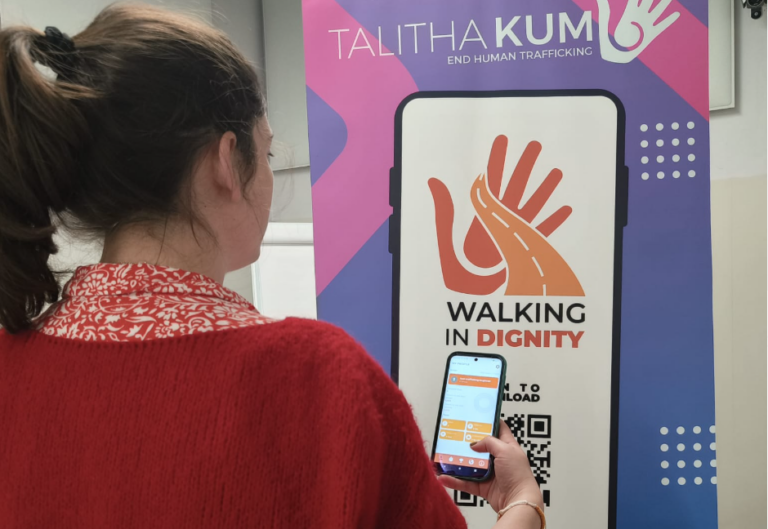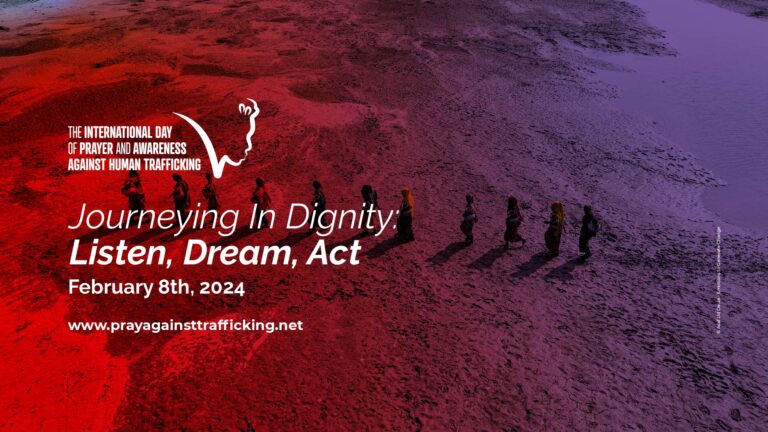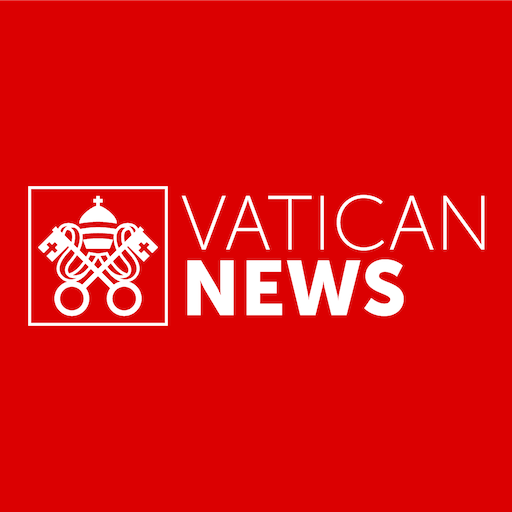By Marta Guglielmetti
Executive Director
Global Solidarity Fund
The sight of thousands of Afghans thronging Kabul airport in late August, some running after US cargo planes to find any means possible of escape, has been etched into our minds as a defining image of 2021. Three years earlier it was Venezuelan refugees, trudging on foot by the thousands, who peopled the front pages of the press. It is almost impossible for us to imagine the sense of fear and desperation that drives people to make such dangerous journeys, with toddlers in tow and a small bag for all your worldly possessions.
This blog is the first in a series of new stories, which will recount how the Global Solidarity Fund (GSF) is galvanizing support for refugees, migrants and other vulnerable groups, through harnessing the innovative power of the private sector with the extraordinary, selfless commitment that Catholic congregations bring to the challenges of development across the global South.
Conflict and economic collapse have long forced millions from their homes, in search of a safer or better life. is a growing “push factor,” with ever more intense and frequent floods, windstorms and droughts driving more than 20 million people a year to flee an uncertain fate, according to UNHCR, the UN’s Refugee Agency. As if the journey isn’t life-threatening enough, migrants face a host of extraordinary challenges when they arrive in a new land or a strange city. They may not speak the right language. They often suffer discrimination and xenophobia. They may lack the right legal documents or permits, which in turn prevents them from accessing healthcare, education or paid work.
GSF is working in Ethiopia to build a network of Catholic congregations, NGOs and private sector companies to improve the lives of vulnerable migrants and internally displaced persons, with a particular focus on skills training and job placement. The region of East Africa & the Horn of Africa is now host to 6.5 million displaced people, as conflict, climate change, Covid and economic crisis compound poverty and drive people into the cities. For decades, communities such as the Missionaries of Charity, the Salesian Sisters and the Salesian Brothers have reached out to the most marginalized, offering vocational training courses in skills ranging from arc welding and electrical installation to graphic design and entrepreneurship.
The orientation program helped me to get my ability in various technical skills for my future career in the world of work – my choice was the furniture-making department.
I am now a respected citizen as I am employed and receive a monthly salary of birr 3,300.00.
Coming from street life and passing through the various social and technical training I went through is really amazing.
I sometimes wonder when I look back to my street life experience and my current status and feel lots of joy.
– Mikiyas Sahlye Mekonen, a former street child trained at the Global Solidarity Fund-supported project of the Salesian Brothers in Addis Ababa, Ethiopia
What’s new is that GSF is taking on the role of catalyst to craft partnerships between these faith-based groups, the international organizations and the private sector. This work is fuelled by our conviction that creating opportunities for vulnerable people cannot be achieved by one actor alone – it requires leaders from all sectors to work together.
Our work in the field is being turbocharged by our Innovation Lab, a global platform to connect businesses and congregations to co-create new pathways to job opportunities for migrants and refugees. The Lab is focused on three main areas:
- Designing new technology platforms, such as databases and mobile apps, which store migrants’ CVs and match their skill sets and experience with the latest job vacancies
- Creating opportunities for CEOs to advocate on key issues affecting migrants, such as securing work permits, gaining access to credit and highlighting their value to the labour force
- Providing professional-level training to improve the business practices and mindset of Catholic congregations to become more effective across the range of their activities to support migrants
What marks out GSF as unique is this combination of global reach and local engagement. Through our relationship with the Catholic Church, we aim to work along with the 1 million-plus Catholic Sisters, Brothers and priests worldwide as agents of change in development, making the most of the Church’s global network of 140,000 schools, 18,000 healthcare facilities and 37,000 education centres, which they lead. At the international level, through our board members and advisors, our Leaders Council and our relationship with the Vatican, we have unique capacities to bring CEOs, government leaders and the heads of international organizations into dialogue with congregations.
The heart of our mission is to craft these local and global actors into networks committed to creating a world where everyone has access to social and economic opportunity and a healthy life in which their dignity is fully respected. We are inspired by the work of Pope Francis, who has championed the cause of inclusive capitalism and made addressing the global migration crisis a cornerstone of his papacy.
Reflecting on recent images of so many vulnerable people on the move, from Afghanistan to the Horn of Africa to Latin America, it is easy to give in to – or perhaps simply ignore – the despair that these media snapshots arouse. Yet we must never forget that migrants have the same rights to a healthy, educated life and a worthwhile livelihood that we do. We are partners in the shared endeavour to realize the UN’s visionary Sustainable Development Goals. And we would do well to remember the words of Amela Koluder, who many years ago fled the war in her native Bosnia-Herzegovina: “A refugee is someone who survived and who can create the future.”




